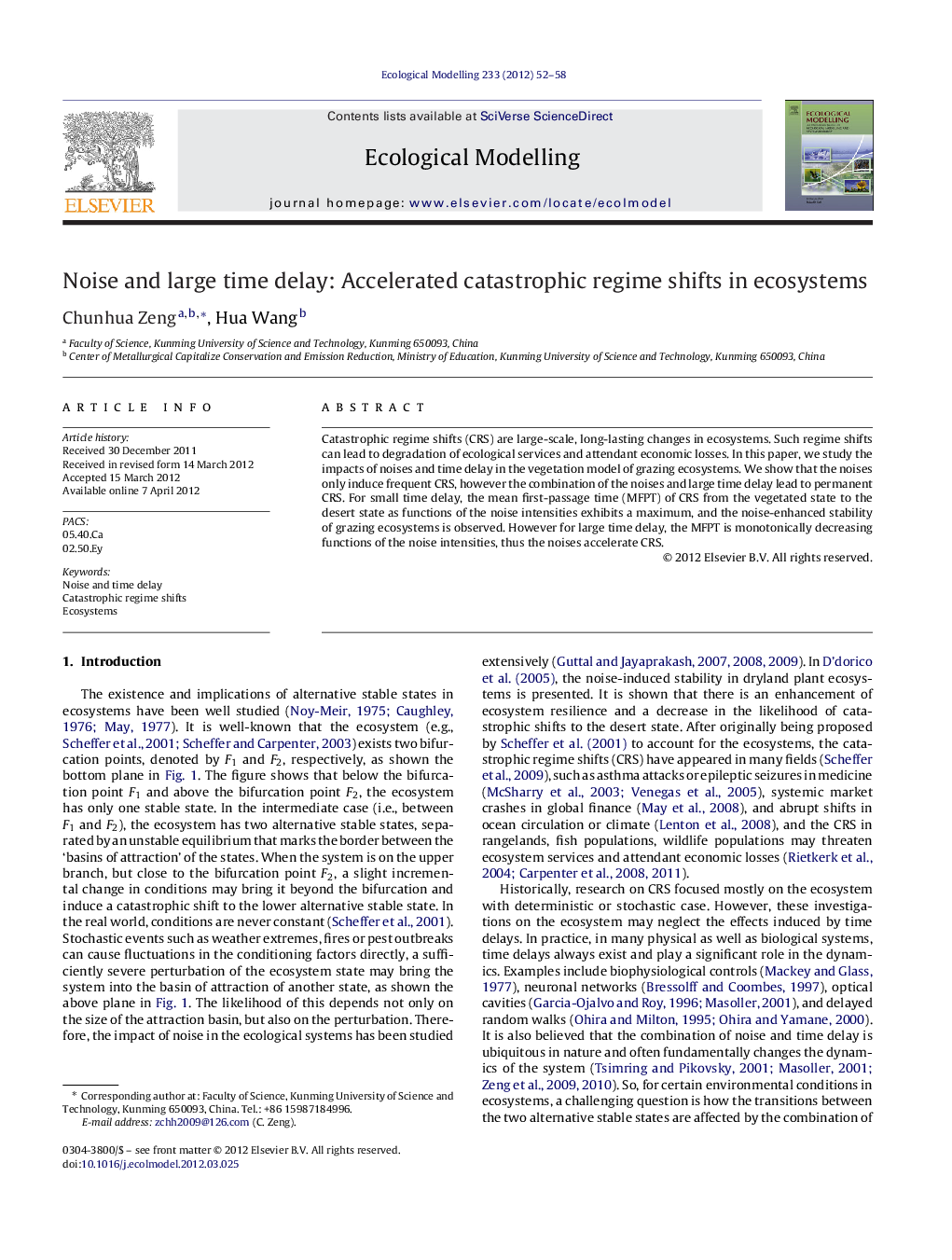| Article ID | Journal | Published Year | Pages | File Type |
|---|---|---|---|---|
| 4376481 | Ecological Modelling | 2012 | 7 Pages |
Catastrophic regime shifts (CRS) are large-scale, long-lasting changes in ecosystems. Such regime shifts can lead to degradation of ecological services and attendant economic losses. In this paper, we study the impacts of noises and time delay in the vegetation model of grazing ecosystems. We show that the noises only induce frequent CRS, however the combination of the noises and large time delay lead to permanent CRS. For small time delay, the mean first-passage time (MFPT) of CRS from the vegetated state to the desert state as functions of the noise intensities exhibits a maximum, and the noise-enhanced stability of grazing ecosystems is observed. However for large time delay, the MFPT is monotonically decreasing functions of the noise intensities, thus the noises accelerate CRS.
► We study impacts of noises and time delay in vegetation model of grazing ecosystems. ► The combinations of noises and large time delay lead to catastrophic regime shifts. ► For small time delay, and the noise enhanced stability of grazing ecosystems is observed. ► However for large time delay, thus the noises accelerate catastrophic regime shifts.
